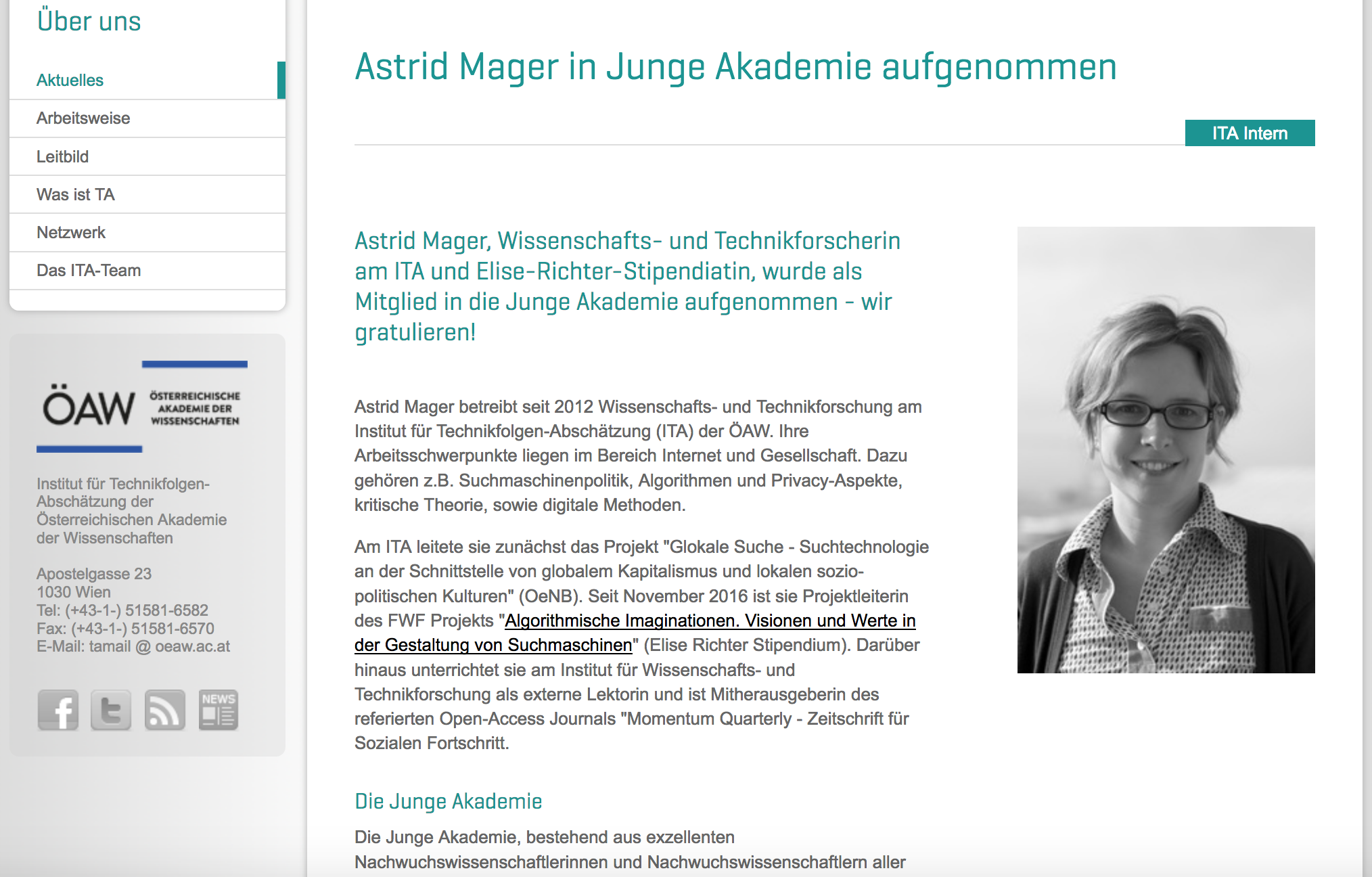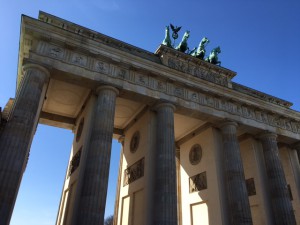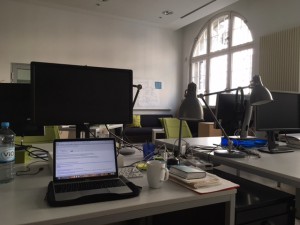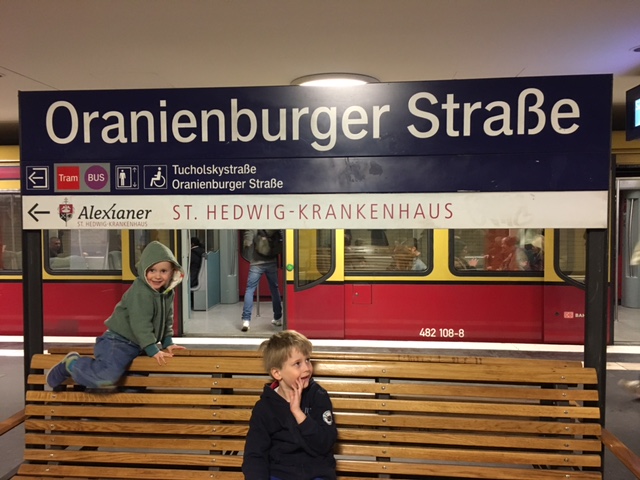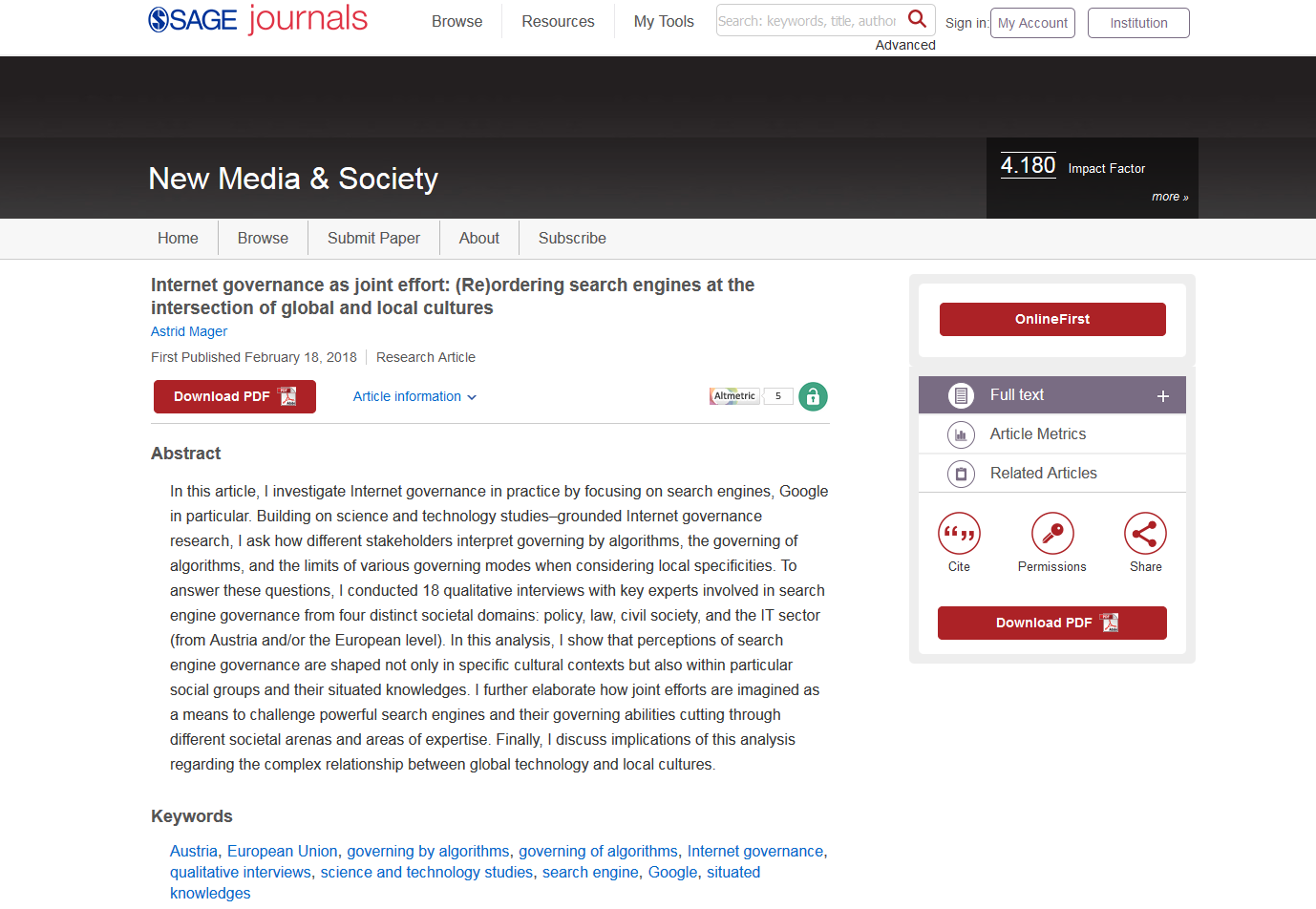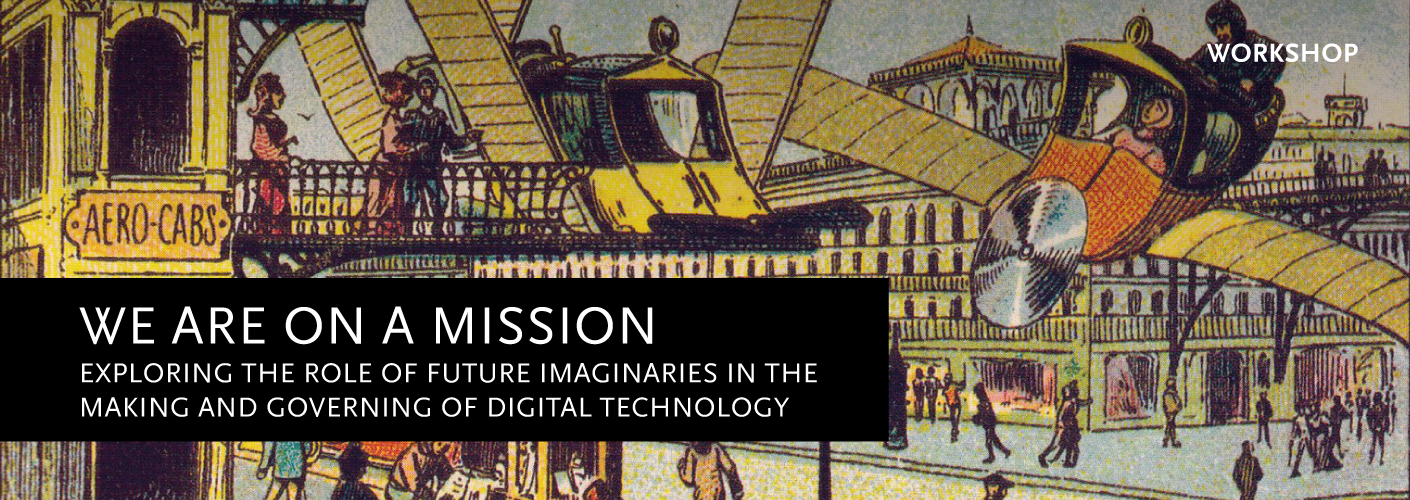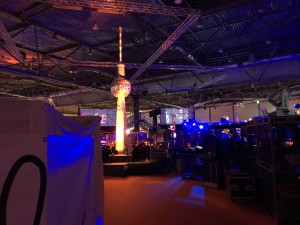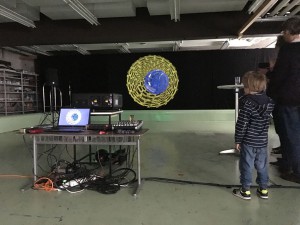That’s the handout of the master course “The future is now. Exploring the role of sociotechnical imaginaries in the making and governing of digital technology” I’m currently teaching at the Department of Science and Technology Studies (University of Vienna). The course is tightly connected to both my reasearch project “Algorithmic Imaginaries” and the special issue “We are on a mission” for New Media & Society I’m guest-editing together with Christian Katzenbach. It’s great to go through all kinds of imaginary concepts together with my students! Here’s the abstract:
Contents, aims and methods of course
Digital innovations such as artificial intelligence, blockchain technology or internet of things are driven by imaginaries of future societies. Future imaginaries are enacted to promote digital developments or legitimate certain modes of internet governance. Software providers, technology companies and legislators dig into the rich pool of cultural norms, visions and values to support (or question) digital tools, rules and regulations. Future prospects seem to be central for making decisions in the present. The future, however, is not only imagined, but also constructed, made and unmade in different constellations and contexts.
This course will focus on the role of sociotechnical imaginaries in the making and governing of digital technology. We will discuss questions such as: How does science-fiction contribute to the shaping of future technologies? How do images and metaphors influence public and policy debates on digital technologies? What do sociotechnical imaginaries tell us about the co-production of digital technology and political order? How are cultural norms, visions and values embedded in software design and infrastructure? How can we study sociotechnical design practices and modes of internet governance? To answer these questions we will draw on theories and concepts from science and technology studies (STS) and critical new media studies. Theoretical discussions will be mixed with empirical work (e.g. analysis of a small selection of newspaper articles, online materials, interviews (1 or 2), experiments etc), which will lead to a small research project that students will present in class. In the seminar papers students will individually write an exposé for a research project, which can, but must not be related to the group work presented in class.


